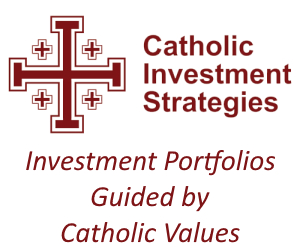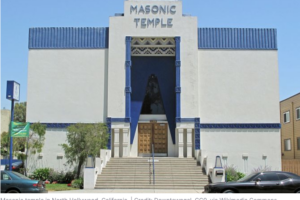CNA—Catholics are strictly prohibited from being Masons or belonging to Freemasonry. Below are seven facts to know in order to not be misled about the matter.
Recently, Father Eduardo Hayen, a Mexican priest of the diocese of Ciudad Juárez and director of the weekly publication “Presencia,” pointed out on X that “a Catholic priest cannot give sacramental absolution to a Mason who asks for Confession and refuses to renounce Freemasonry.”
“No matter how much some Masons insist that one can be Catholic and belong to a lodge, the reality is that these two visions of the world and of God are irreconcilable,” he warned.
1. The idea of God
The outspoken priest explained that the idea of God “for Masons, is dictated by reason, while for Catholics it is given by the Revelation of God in Jesus Christ.” 
“For Freemasonry, God is the Great Architect of the Universe, but it denies that Jesus is begotten and not created, of the same nature as the Father, God from God, Light from Light, true God from true God, who became incarnate and spoke to all men to offer them salvation,” as the Nicene Creed of the Catholic Church declares.
2. Relativism
Hayen then warns that “while Freemasonry welcomes all religions in a religious relativism, Catholicism requires loving submission to the one true God, as well as the renunciation of all beliefs opposed to the God revealed by Christ.”
3. Masonic ‘mysteries’
The Mexican priest also pointed out that “Masonry studies ‘mysteries’ that are revealed only to a few initiates who reach higher levels of knowledge of these enigmas. The Catholic, on the other hand, knows the Great Mystery that was hidden for centuries and that was revealed in the fullness of time, when the Word became man.”
“This ‘Great Mystery’ is not for a few, but for all humanity: man is immensely loved by God and is called to participate, in Christ, in the same divine life here on earth and in eternity,” Hayen emphasizes.
4. Fraternity in Freemasonry
“Fraternity in Freemasonry comes from the ideals of the French Revolution: it is the generic idea of being brothers only because we are of the  same human race,” the Mexican priest explained.
same human race,” the Mexican priest explained.
“Being brothers for Catholics, on the other hand, is first recognizing the source of brotherhood, which is God the Father, who gave his Son Jesus Christ to make us sons in the Son,” who gives himself for all of us daily in the Eucharist.
5. Masonic philanthropy vs. Christian charity
Hayen also noted that “Christian charity is different from Masonic philanthropy. Masons say that it is based on doing good, but what good? For them there is no morality based on natural law and the Ten Commandments. In fact, the promotion of abortion, euthanasia and same-sex marriage are of Masonic inspiration. They base their actions on moral and doctrinal relativism.”
The priest emphasized that “for Catholics, on the other hand, charity is inspired by the commandment of love for Christ: ‘A new commandment I give to you, that you love one another; as I have loved you’ (Jn 13:34), and it is Christ himself who lives in his brothers: ‘Amen, I say to you, whatever you did for one of these least brothers of mine, you did for me’ (Mt 25:40).”
6. What does the Catholic Church say about Masons?
The Code of Canon Law establishes in Canon 1374 that “A person who joins an association which plots against the Church is to be punished with a just penalty; one who promotes or takes office in such an association is to be punished with an interdict.”
Broadly speaking, an interdict can be defined as a canonical penalty or censure that, while it does not break the communion with the Church like excommunication, it does deprive the person of celebrating or participating in sacraments.
The wording of the Code of Canon Law approved in 1983 differs from the 1917 version in two respects: the penalty is not automatic and there is no explicit mention of Freemasonry.
In response to this, then Cardinal Joseph Ratzinger, when he was prefect of the Congregation — today a Dicastery — for the Doctrine of the Faith in the Vatican, published the 1983 “Declaration on Freemasonry.” 
This text by the future Pope Benedict XVI highlights that “the Church’s negative judgment in regard to Masonic association remains unchanged since their principles have always been considered irreconcilable with the doctrine of the Church.”
Therefore “membership in them remains forbidden. The faithful who enroll in Masonic associations are in a state of grave sin and may not receive Holy Communion,” the text declares.
7. The latest Vatican document on Freemasons
On Nov. 15, 2023, the Vatican reaffirmed that Catholics cannot belong to Freemasonry and are prohibited from joining a lodge due to their “irreconcilability” with Catholic doctrine.
The Dicastery for the Doctrine of the Faith made this declaration in a document released at the time, with the signature of its prefect, Cardinal Víctor Manuel Fernández, a text approved by Pope Francis.
The letter was issued in response to a query from Bishop Julito Cortes of the Diocese of Dumaguete in the Philippines, who expressed to the Holy See his concern about the situation in his diocese caused by “the continuous increase in the number of faithful” who are joining Freemasonry.
—-
This article first published by ACI Prensa, CNA’s Spanish-language news partner. It has been translated and adapted by CNA and we repost with permission.




You must be logged in to post a comment.